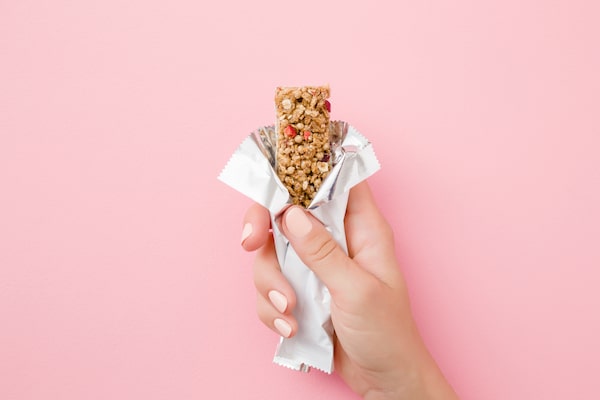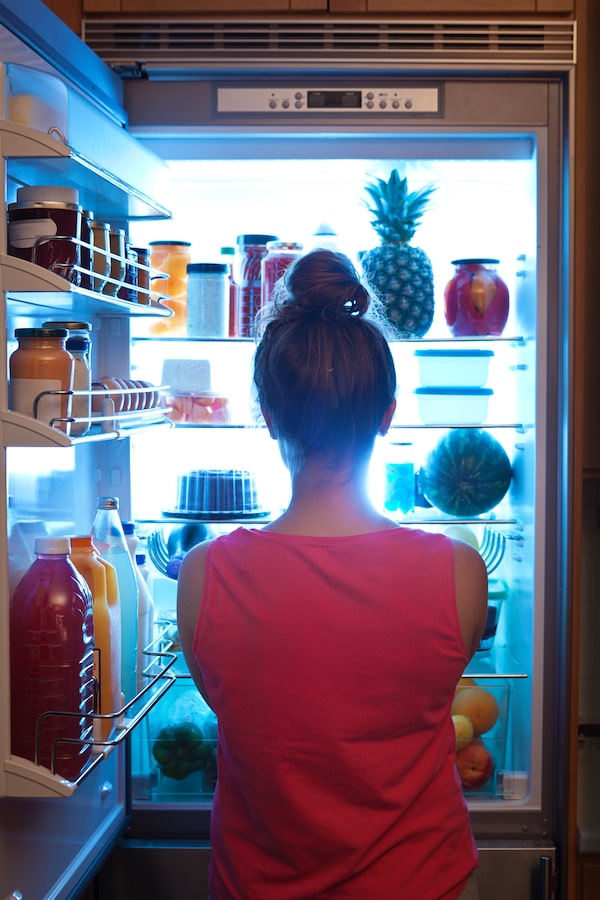
It could be too much of a good thing. Consider your portion size of good-for-you foods, such as cooked whole grains and nuts in cereal bars.iStockPhoto / Getty Images
I’ve managed to gain five pounds during COVID-19 despite working out every day and not eating any restaurant meals. What can I do to get my diet on track for summer?
For many people, staying at home has meant a steady fare of home-cooked meals and more time for exercise, two positive habits that can help maintain a healthy weight. But, depending on your overall diet, they may not be enough to hold your weight steady.
Dietary blunders may unknowingly be adding extra calories to your day. Consider the following mistakes that can undermine your weight control efforts, plus strategies to help avoid making them:
Mindless nibbling
It’s easy to forget about the homemade treat you grab as you pass through the kitchen or the repeated tastings while prepping dinner. And with children always around it can become routine to finish what’s left on their plate or to constantly snack.
But all of those unconscious bites can add up significantly – to the calorie equivalent of an entire meal if you’re not careful.
To become aware of under-the-radar calories, track your food intake in a journal or an app. Do it in real time to stay mindful.
Make your daily snacks deliberate by planning what you will eat. Serve them on a small plate or in a small bowl to be attentive to portion size.

One way to control mindless snacking is to plan what you will eat ahead of time.YinYang/iStockPhoto / Getty Images
Bigger portions of “healthy” foods
It’s common to overlook calories in nutritious foods. For example, people often eat twice the serving size of fish as they do meat or chicken.
But along with the omega-3 fatty acids and vitamin D, an eight-ounce serving of grilled Atlantic salmon has 465 calories, double the amount found in a four-ounce sirloin steak.
Keep your portion size of fish, chicken or meat to three to six ounces, depending on your daily protein and calorie needs. Use a food scale to learn what that amount looks like.
Consider your portion size of other good-for-you foods, too, such as cooked whole grains, fruit smoothies, avocado and nuts. One 200-gram avocado, for instance, has 322 calories and one-half cup of almonds (two handfuls) has 414.
Too liberal with added fats
If you don’t know how much olive oil you toss your salad greens with or sauté your vegetables in, measure it. With 120 calories in every tablespoon, pouring (versus drizzling) cooking oil can put a big dent in your daily calorie budget.
Other ways that extra calories from added fats can sneak in: adding cheese and nuts to salads, being generous with seeds (for example, flax, chia, hemp) in your smoothie and spreading too much nut butter on toast.
Using exercise to justify eating more
If you work out a lot, you might rationalize eating an extra helping of dessert or slice of pizza. You’re burning off those calories during exercise, right? Maybe not.
Consider that one pound of body fat stores about 3,500 calories. That means you’d have to burn an additional 500 calories every day in order to lose a pound each week. One indulgent meal can wipe out a day’s calorie burn from exercise.
Another common mistake: overeating protein because you’re lifting weights. It is true that exercise, especially strength training, increases daily protein requirements. But if you are already getting the calories you need, protein that’s not needed will end up stored as body fat.
If your goal is to lose weight, keep up the exercise, but focus on your diet, too.
A daily cocktail (or two)
Alcoholic beverages add extra calories to your diet, and they can also undermine your resolve to eat healthfully. Consider that a five-ounce glass of wine has 125 calories, a gin and tonic has 140 and a 12-ounce craft beer delivers roughly 200.
If nightly happy hours or Zoom cocktail parties have become a regular part of pandemic life, cut back by reserving alcoholic beverages for weekends or special occasions.
Leslie Beck, a Toronto-based private practice dietitian, is director of food and nutrition at Medcan.
Sign up for the weekly Health & Wellness newsletter for the latest news and advice.
 Leslie Beck
Leslie Beck